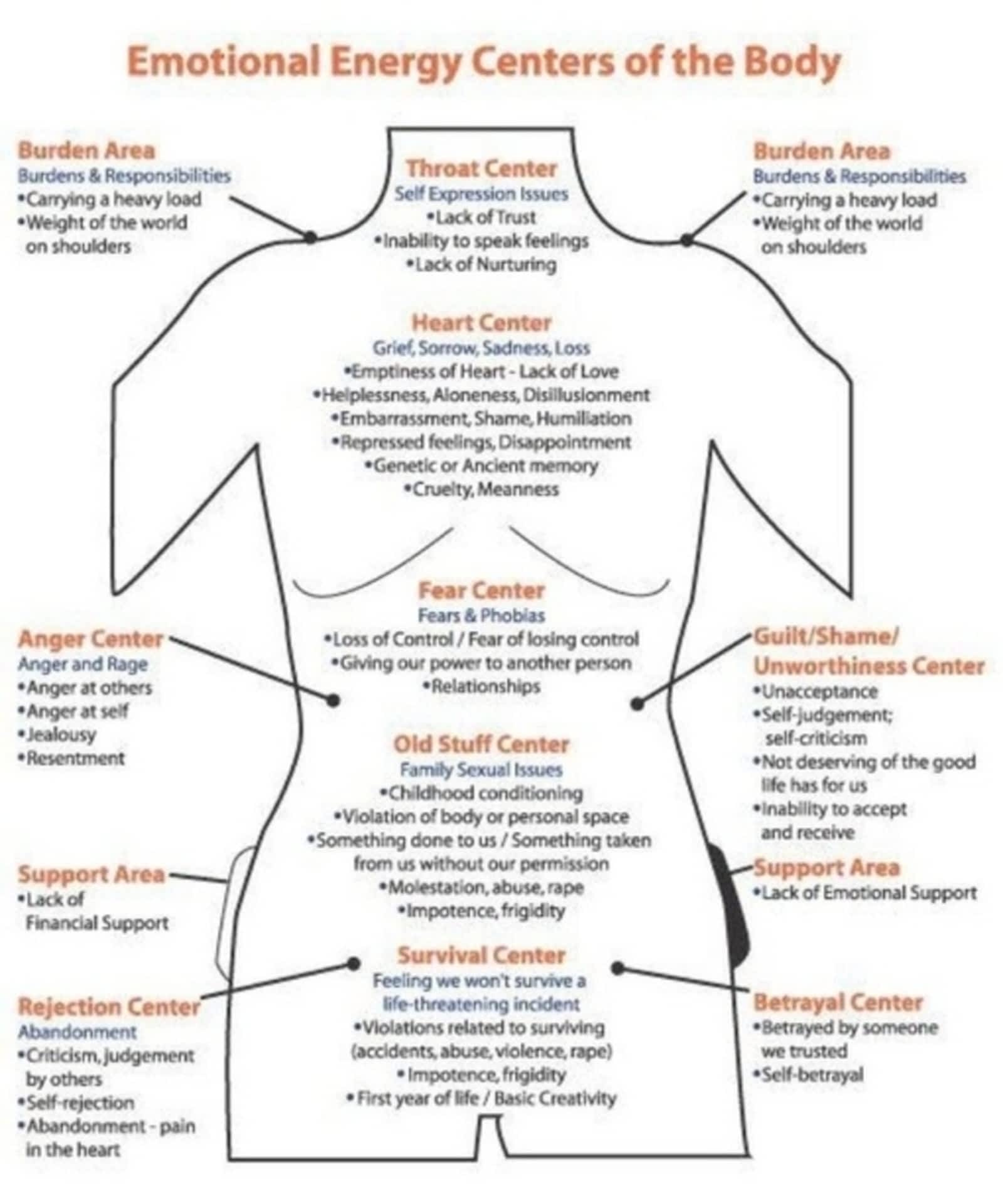The Silent Toll: How Suppressing Emotions Impacts Your Health

Numerous studies indicate that the act of controlling or disregarding our emotions can trigger both mental and physical responses. Suppressing emotions, be it anger, sadness, grief, or frustration, and even withholding expressions of love, can exert tangible stress on the body. Did you realize that this could influence variables like blood pressure, memory, and self-esteem?
We've been ingrained with the idea of brushing aside, denying, and evading our emotions, but this goes beyond just being unhelpful advice. It leads to mental and physical blockages, necessitating a process of healing. When we resist, suppress, or condemn ourselves for experiencing emotions, the toll on our health is steep. Avoiding our emotions doesn't make them disappear; in fact, it fortifies them. This reinforcement can manifest as suppressed tensions in both the body and the mind, potentially resulting in health issues.
 |
Here are some common connections between emotions and body parts:
Stress and Anxiety:
Affected Body Parts: The effects of stress and anxiety are widespread and can impact various body systems. Common physical manifestations include tension in the muscles, particularly in the neck and shoulders, headaches, stomach discomfort, and an increased heart rate.
Happiness and Joy:
Happiness and Joy:
Affected Body Parts: Positive emotions like happiness and joy can lead to a sense of lightness and well-being. These emotions may be associated with feelings of warmth and expansion in the chest, relaxed facial muscles, and an overall sense of relaxation.
Sadness and Grief:
Sadness and Grief:
Affected Body Parts: Sadness and grief can often be felt as a heaviness in the chest, a lump in the throat, or a feeling of emptiness in the stomach. There may also be physical signs like fatigue and changes in appetite.
Anger:
Affected Body Parts: Anger is commonly associated with increased tension, especially in the jaw, neck, and shoulders. It can also lead to a rapid heartbeat, flushed skin, and, in some cases, headaches.
Fear and Anxiety:
Fear and Anxiety:
Affected Body Parts: Fear and anxiety can trigger the "fight or flight" response, leading to physical sensations such as a racing heart, shallow breathing, muscle tension, and a heightened state of alertness.
Love and Affection:
Love and Affection:
Affected Body Parts: Feelings of love and affection are often associated with warmth in the chest, a relaxed posture, and a sense of calm. The release of oxytocin often referred to as the "love hormone," can contribute to these physical sensations.
It's crucial to recognize that these associations are not one-size-fits-all, and individual experiences may vary. Additionally, chronic emotional states or the suppression of emotions can contribute to more complex and long-term physical effects on the body. It's very important to recognize that acknowledging and addressing our emotions is a vital aspect of maintaining overall well-being.
It's crucial to recognize that these associations are not one-size-fits-all, and individual experiences may vary. Additionally, chronic emotional states or the suppression of emotions can contribute to more complex and long-term physical effects on the body. It's very important to recognize that acknowledging and addressing our emotions is a vital aspect of maintaining overall well-being.
You may like my other Interesting articles at

Surprised to know the reason for my shoulder pain..very logical 🫡
ReplyDeleteVery informative! Good write up👍
ReplyDeleteVery informative. I agree one should keep a healthy check on their emotions and answer them on the right time. Bravo!!👌👌
ReplyDeleteThis post made me think about emotions in a different light.Your perspective on emotions and health is eye-opening...Thank you dost...
ReplyDelete